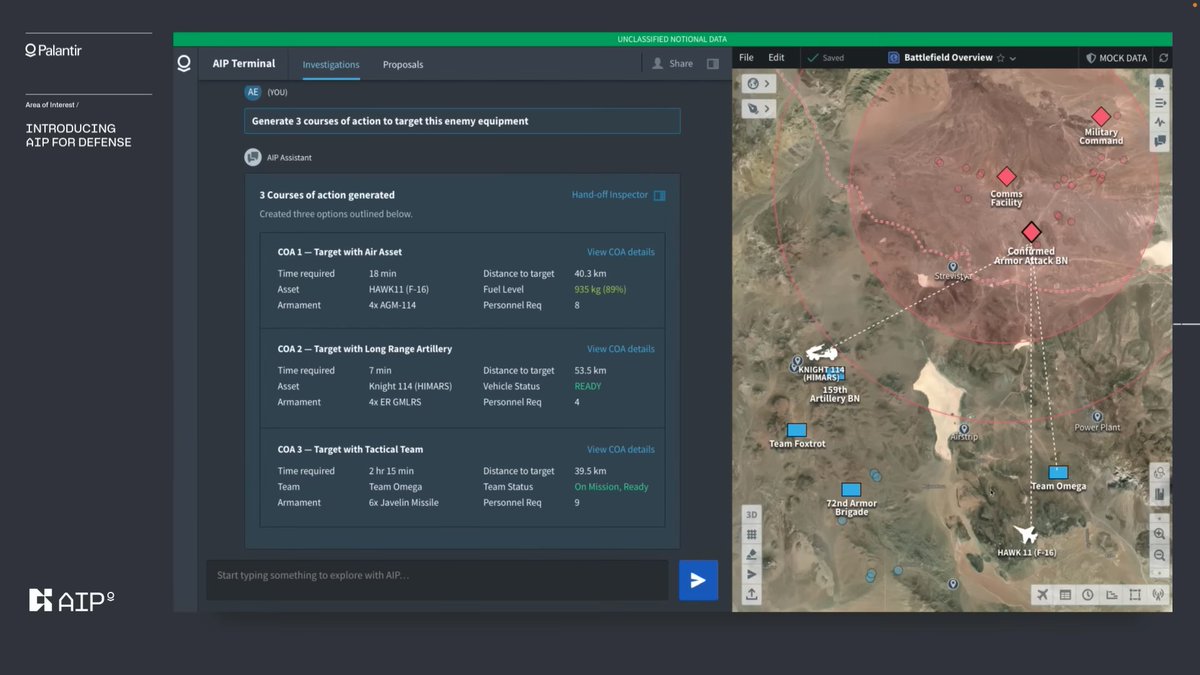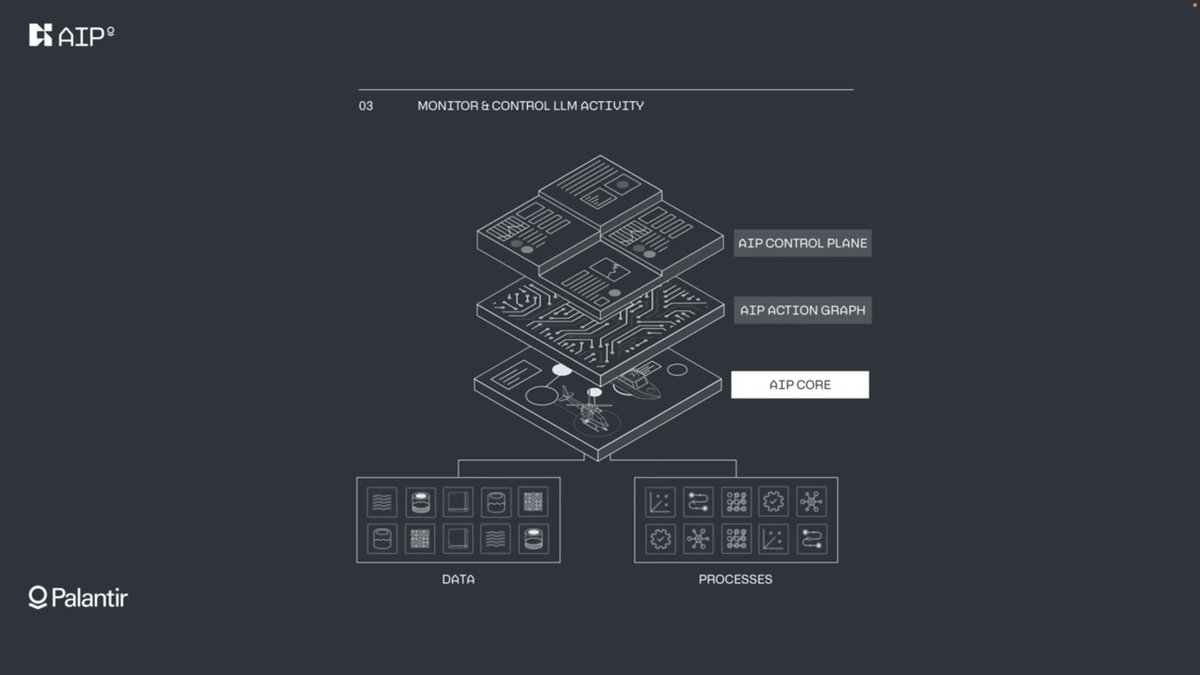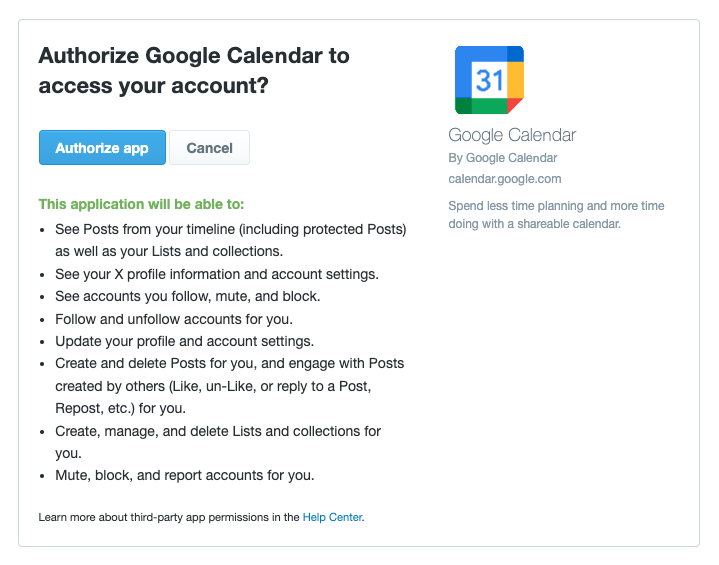Yesterday Palantir announced its Artificial Intelligence Platform.
Here's how it transforms the future of military and defence:
Here's how it transforms the future of military and defence:

AIP has 3 core pillars:
• Deploys LLMs and AI across classified networks & devices
• Connects classified data to create a real-time environment
• Enables security features controlling AI access
I feel guardrails & security are critical for sensitive data here.
Let's dive in
• Deploys LLMs and AI across classified networks & devices
• Connects classified data to create a real-time environment
• Enables security features controlling AI access
I feel guardrails & security are critical for sensitive data here.
Let's dive in

We'll start with an example: you're a military operator.
You get an alert of activity nearby & ask AIP to show more details.
AIP:
• Uses satellite data & AI to build likely battle formations
• Surfaces the idea of deploying a nearby drone to collect video
You get an alert of activity nearby & ask AIP to show more details.
AIP:
• Uses satellite data & AI to build likely battle formations
• Surfaces the idea of deploying a nearby drone to collect video
You task the drone to capture video.
The footage confirms a threat and shows a tank.
You ask AIP what to do next.
AIP:
• Generates 3 courses of action to target the enemy equipment
• Automatically sends these options up the chain of command
The footage confirms a threat and shows a tank.
You ask AIP what to do next.
AIP:
• Generates 3 courses of action to target the enemy equipment
• Automatically sends these options up the chain of command
Let's take a look at what's happening behind the scenes.
As you ask questions, AIP:
• Traverses information across both public and classified sources
• Enforces which part of the organisation the LLM has access to
• Auto tag & protect data respecting permissions
As you ask questions, AIP:
• Traverses information across both public and classified sources
• Enforces which part of the organisation the LLM has access to
• Auto tag & protect data respecting permissions
You now assess the courses of action generated by AIP.
AIP:
• Highlights key information
• Find personnel & armament requirements
• Determines time required & status of supplies
It then establishes the closest unit before building an automated terrain analysis model.
AIP:
• Highlights key information
• Find personnel & armament requirements
• Determines time required & status of supplies
It then establishes the closest unit before building an automated terrain analysis model.
Things get even crazier.
AIP:
• Suggests optimal route based on terrain analysis
• Identifies and disrupts enemy communication nodes
You can then use AIP to summarise and submit the operation plan.
AIP has successfully helped you determine the course of action.
AIP:
• Suggests optimal route based on terrain analysis
• Identifies and disrupts enemy communication nodes
You can then use AIP to summarise and submit the operation plan.
AIP has successfully helped you determine the course of action.
I'm blown away by this application of AI in military situations.
I can only feel it makes AIP a critical tool for modern military operations moving forward.
The takeaway?
AI-powered militaries are quickly becoming a reality.
I can only feel it makes AIP a critical tool for modern military operations moving forward.
The takeaway?
AI-powered militaries are quickly becoming a reality.
Follow me @thealexbanks for more on AI.
If you liked this thread, you'll love the newsletter.
Cut through the noise in AI each week, subscribe here:
noise.beehiiv.com/subscribe
If you liked this thread, you'll love the newsletter.
Cut through the noise in AI each week, subscribe here:
noise.beehiiv.com/subscribe
Help everyone learn and retweet this thread:
https://twitter.com/thealexbanks/status/1651560588362002433
You can read more about it in Palantir's announcement here:
palantir.com/platforms/aip/
palantir.com/platforms/aip/
• • •
Missing some Tweet in this thread? You can try to
force a refresh















